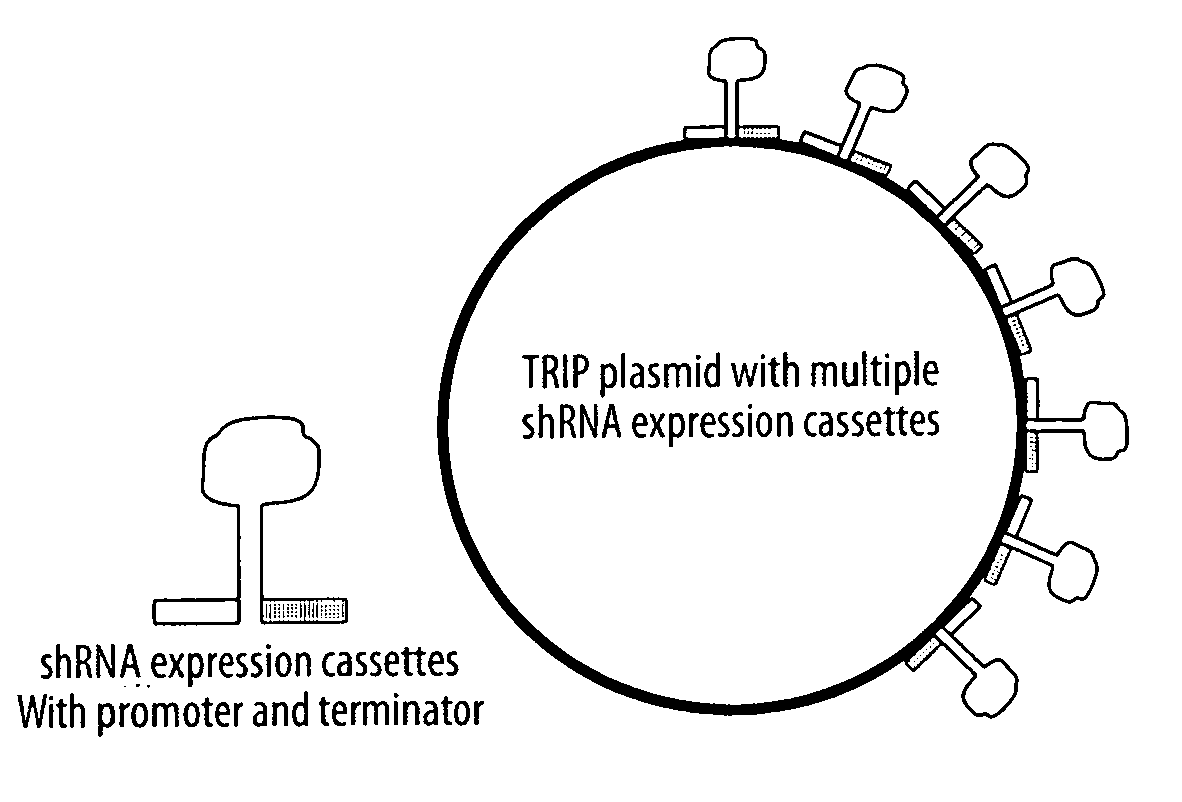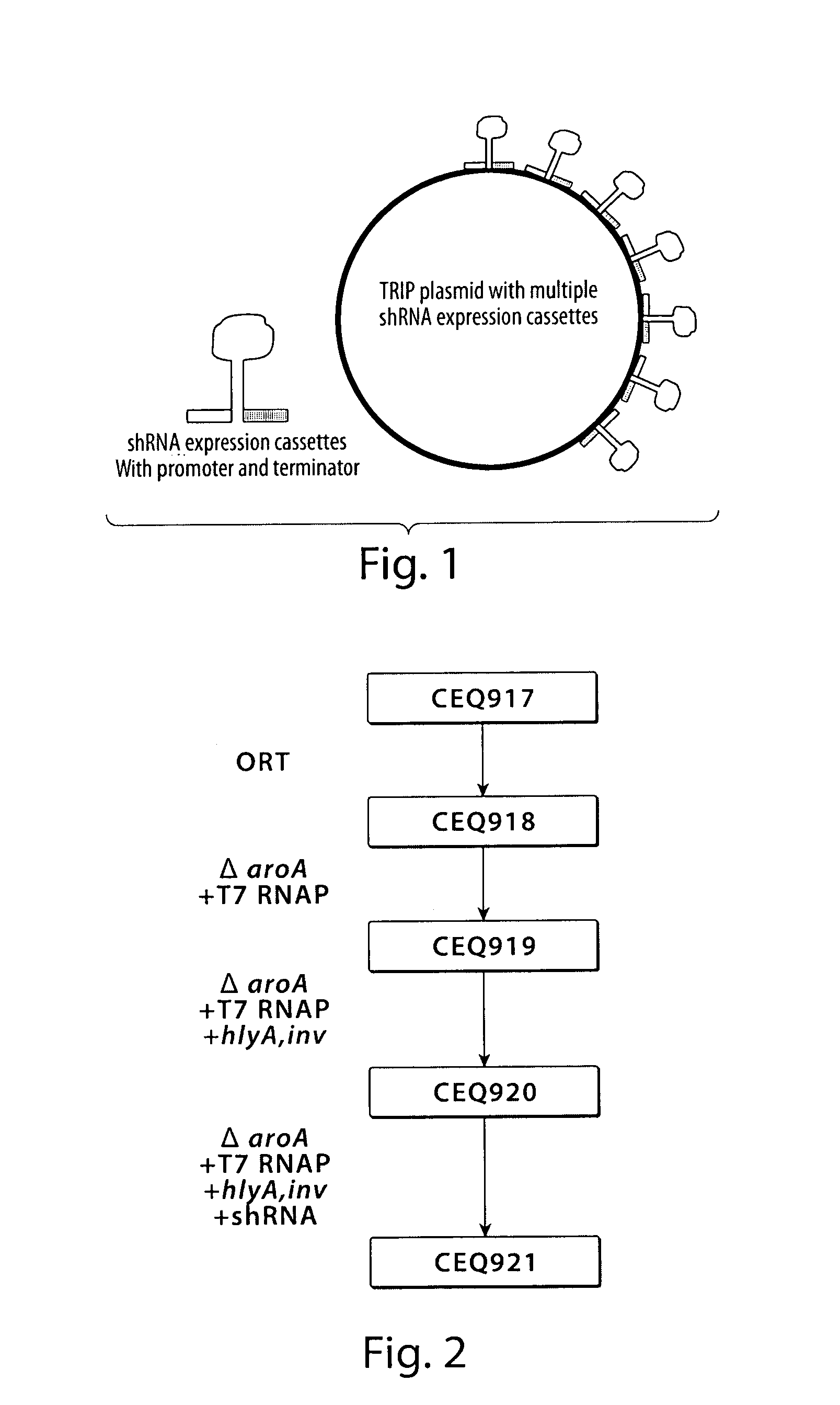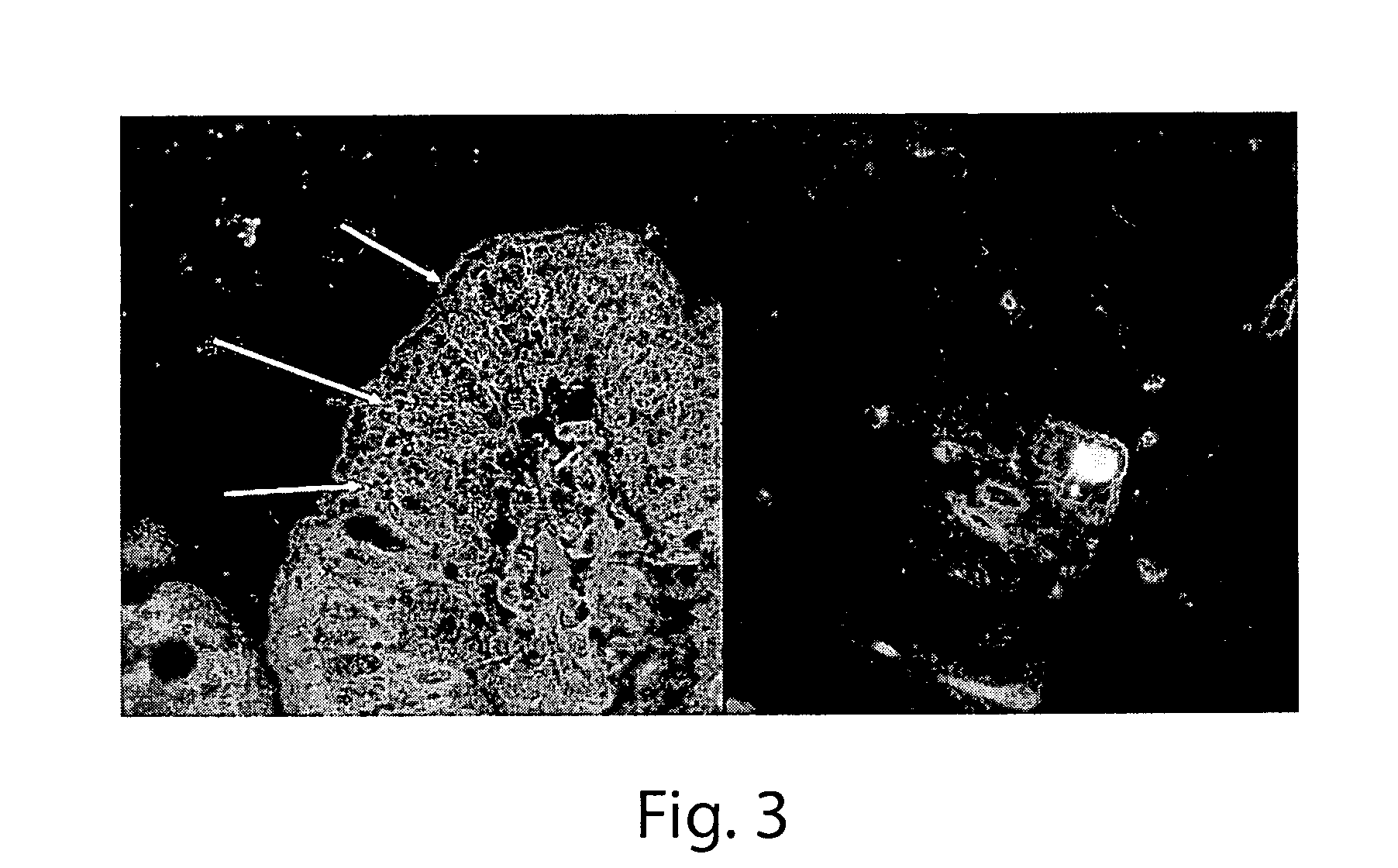Bacteria mediated gene silencing
a technology of gene silencing and bacteria, applied in the field of bacteria mediated gene silencing, to achieve the effect of reducing or inhibiting the expression of one or more hpv oncogenes, and reducing or inhibiting the expression of one or more genes of interes
- Summary
- Abstract
- Description
- Claims
- Application Information
AI Technical Summary
Benefits of technology
Problems solved by technology
Method used
Image
Examples
example 1
Knockdown of β-Catenin and k-Ras
[0243]Previous studies have demonstrated the powerful nature of the siRNA knockdown technology disclosed herein. For example, in vitro and in vivo knockdown of beta catenin and k-ras utilizing bacterial delivery is described in PCT Publication No. WO 06 / 066048, which is incorporated herein by reference in its entirety.
example 2
TRIP with Multiple shRNA Expression Cassettes
[0244]The TRIP described herein, and described in further detail in PCT Publication No. WO 06 / 066048, can be modified to produce a plasmid which allows targeting of multiple genes simultaneously or multiple sequences within one gene simultaneously. For example, TRIP with multiple hairpin expression cassettes to produce shRNA can target different sequences in a given gene, or target multiple genes through a simultaneous bacterial treatment.
[0245]The TRIP plasmid can incorporate multiple (up to ten) cloning sites to express different shRNA constructs (FIG. 1). The purpose of such a plasmid will be to allow silencing of various genes through a single therapeutic bacterium which will be empowered by the Multiple-expression cassette-TRIP (mec-TRIP) to synthesize short hairpin RNA against a variety of targets simultaneously.
[0246]These different hairpins can either be expressed competitively at high levels through the use of an identical high l...
example 3
Operator Repressor Titration System
[0248]The TRIP system (bacteria and plasmid) have been modified to include the ORT (Operator Repressor Titration) system from Cobra Biomanufacturing (Keele, UK). This adaptation helps to maintain the plasmid in suitable strains in the absence of selective antibiotics. The bacterial carrier strain has been modified accordingly to allow for the ORT system to function (deletion of the DAP gene and replacement with an ORT-controlled DAP gene expression system). The plasmid has been modified to remove the antibiotic selection sequences to support the ORT system. Further changes have been introduced to the bacterial genome, including for example, (a) deletion of the aroA gene (in some CEQ strains) to make the bacteria more susceptible to nutrient shortage, particularly in the intracellular compartment where they will die due to lack of nutrients; (b) insertion of T7RNA polymerase gene into the chromosome and or (c) integration of a shRNA expression casse...
PUM
| Property | Measurement | Unit |
|---|---|---|
| Therapeutic | aaaaa | aaaaa |
| Gene expression profile | aaaaa | aaaaa |
Abstract
Description
Claims
Application Information
 Login to View More
Login to View More - R&D
- Intellectual Property
- Life Sciences
- Materials
- Tech Scout
- Unparalleled Data Quality
- Higher Quality Content
- 60% Fewer Hallucinations
Browse by: Latest US Patents, China's latest patents, Technical Efficacy Thesaurus, Application Domain, Technology Topic, Popular Technical Reports.
© 2025 PatSnap. All rights reserved.Legal|Privacy policy|Modern Slavery Act Transparency Statement|Sitemap|About US| Contact US: help@patsnap.com



